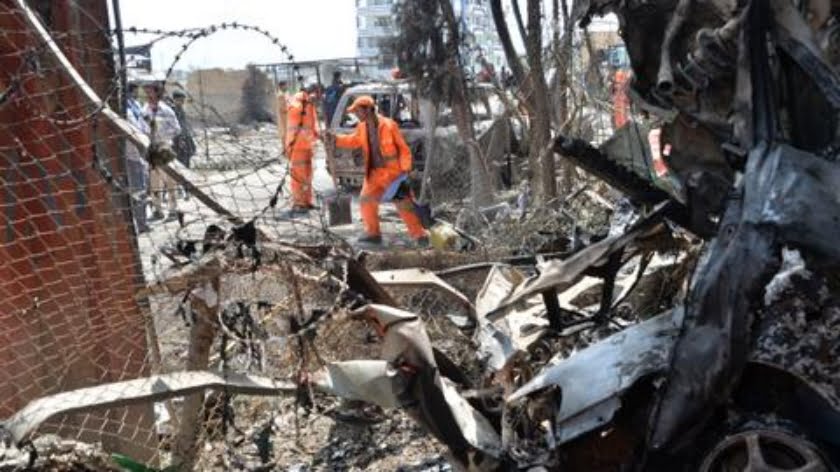The Consequences of the Coronavirus Pandemic are Dire
More than four million people worldwide have died from COVID-19, according to Johns Hopkins University. Three countries account for more than one third of all the deaths in the world: the largest number is in the United States, with 606,000, accounting for 15% of all deaths, followed by Brazil and India. However, given the difficulty of accurately tracking the spread of the virus, especially in developing countries, many experts believe that the total number of deaths in the world is substantially higher than official figures. For example, according to the conservative estimates by the WHO, it can be confidently stated that the pandemic has claimed 6-8 million victims.
The Director-General of the International Labor Organization, Guy Ryder, stated that the global crisis triggered by the COVID-19 pandemic has effectively destroyed the results of all efforts aimed at reducing poverty among working-age citizens over the previous five years. Experts estimate that 220 million people this year will not be able to find work, and if governments do not take drastic measures, soon even more people may be below the poverty line than existed before the pandemic.
The pandemic has widened the gap between the rich and the poor, writes Germany’s Frankfurter Allgemeine. While the gap between rich and poor four years before the coronavirus pandemic had slightly narrowed, it widened again last year. According to the research center run by Credit Suisse bank, 1.1% of the adult population across the planet owns almost 46% of the privately held wealth, meaning a total of $192 trillion! When analyzing the situation by region, it appears that the wealth held by people in North America, Europe, China and the Asia-Pacific region increased significantly in 2020, while the population’s wealth declined in Latin America and India. For example, it was discovered that 22 million people who are USD millionaires live in the United States, with 5.3 million in China and just under 3 million in Germany.
The number of French billionaires has grown from 95 to 109 since June 2020, and the total wealth held by the 500 richest people in the largest country in Western Europe has increased by 30%. These are the assessments of the business publication Challenges, which has been compiling an annual rating of the wealthiest citizens in the Fifth Republic for one quarter of a century.
According to a report by the British nongovernmental organization Oxfam that was prepared in January, the money that the ten largest billionaires have amassed during the pandemic crisis would have been enough to put an end to poverty and pay for vaccinations around the world, UN Secretary General António Guterres stated. As a result of the coronavirus pandemic, the world has become very fragile, and has entered the worst economic crisis encountered over the last century, Antonio Guterres emphasized at The Davos Agenda. The diplomat believes that the pandemic has exposed world ills such as the income inequality that exists between people and countries. According to Oxfam, since March 2020, the wealth held by the 10 richest people in the world has increased by $540 billion. At the same time, “the billions of people who were living on the edge of poverty at the beginning of the pandemic no longer have either the income or support to survive the crisis,” said Danny Sriskandarajah, the CEO of Oxfam GB. During the same period of time, a small group of people has accumulated more money than they can spend in their entire lives.
In the United States, an increasing number of residents have to deal with mushrooming medical debt, and the crisis in the economy and in the labor market in the wake of the COVID-19 pandemic is only exacerbating the situation, American media emphasize. At the same time, statistics show that low-income citizens and people of color living in the US, are having the hardest time coping with debt.
In the pandemic, various schemes in the fight against COVID-19 in many Western countries have taken on an unprecedented scale, due to which criminal groups lining their pockets by taking advantage of people’s troubles is occurring at an unprecedented rate.
So according to experts in the field of combating fraud, the United States alone lost about $400 billion due to fake applications for unemployment benefits, reports Insider. Specialists believe that altogether half of the benefit payments were stolen, and most of the funds ultimately left the country and were deposited with criminal groups in third-world countries.
Opposition parties in Germany have accused the government of embezzling money allocated by government agencies for COVID testing. Those charges first surfaced in late May, following reports that test centers operated by the company MediCan were putting in claims for financial reimbursement from the government for hundreds of COVID-19 tests that were never performed. German Federal Minister of Health Jens Spahn, although distancing himself from the embezzlement allegations, was forced to order that another investigation be conducted.
According to a study done by Transparency International, almost one third of EU residents were forced to use their personal connections to gain access to health services during the COVID-19 pandemic. The survey also found that one in five people in Romania, Bulgaria, Hungary, and Lithuania had paid bribes to see a healthcare professional. As the authors of the report emphasize, these results are troubling, because using connections to obtain a vaccine, or a slot in a hospital, can lead to the death of people who are not as well-protected. “The EU is often viewed as a stronghold of integrity, but these results show that countries across the region remain vulnerable to the insidious effects of corruption,” said Transparency International Chair Delia Ferreira Rubio.
Losses to the world economy from the collapse of tourism could amount to more than $4 trillion, it follows from a study conducted at the UN. It was reported that in 2020 the decline in the tourism industry was 73% compared to the previous year, and in 2021, according to experts, a similar decline can be expected.
Another horrific consequence of the coronavirus pandemic is that the world has become addicted to cannabis: the pandemic has turned into a drug boom, according to a report released on June 24 by the United Nations Office on Drugs and Crime (UNODC) in Vienna. About 275 million people in the world used drugs last year. On top of that, more than 36 million people suffered from disorders related to drug use. As follows from the document, most of the countries mentioned in it reported an increase in the use of cannabis (marijuana) amidst the global pandemic due to the coronavirus infection COVID-19. In addition, there has been an increase in the use of pharmaceuticals that contain cannabis for non-medical purposes.
Pondering on the possible consequences stemming from the pandemic, experts warn against being overly optimistic, especially over the long term. In particular, they point to potential threats posed to stability in the future, and to the aggravation of pre-existing social and political tensions.







